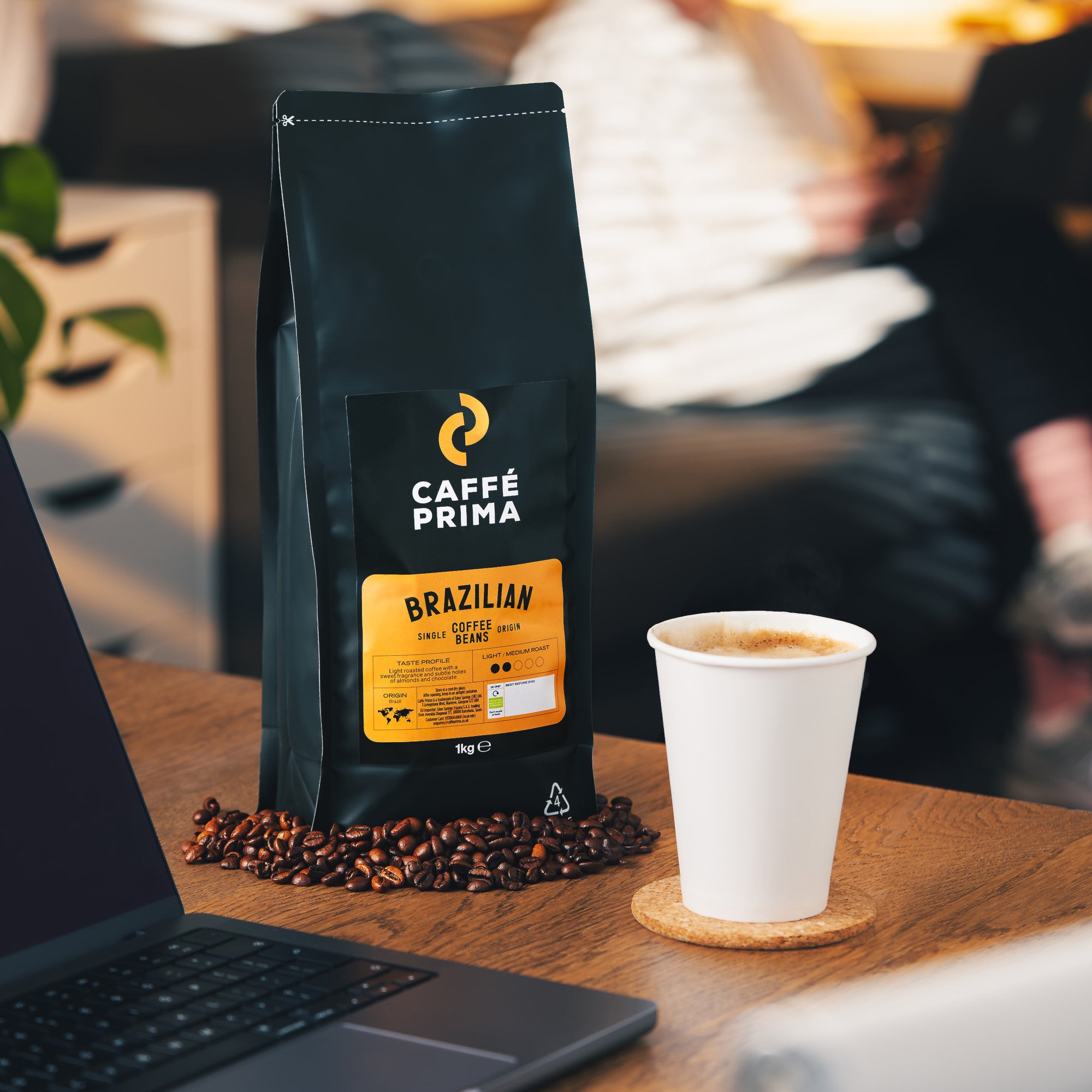What makes Brazilian coffee beans unique?
Brazilian coffee beans are known for their smooth, mild body with low acidity and subtle sweetness. Unlike more acidic coffees from places like Kenya or Ethiopia, Brazilian beans offer a more approachable profile with nutty and chocolate notes. This makes them perfect for everyday drinking and an excellent base for espresso blends. Brazil's varied growing regions and climate contribute to beans that are consistent and balanced, with a gentle complexity rather than sharp, bright flavours.
How are Brazilian coffee beans processed?
Most Brazilian coffee undergoes either natural (dry) or pulped natural (semi-washed) processing. The natural process, where coffee cherries dry in the sun with the fruit intact, enhances sweetness and body while reducing acidity. The pulped natural method, where the skin is removed but the mucilage remains during drying, creates a middle ground between the fruitiness of natural processing and the clarity of fully washed coffees. These methods complement the characteristics of Brazilian beans and help develop their signature smooth, nutty profile.
What coffee varieties are grown in Brazil?
Brazil grows primarily Arabica varieties, which account for about 70% of the country's coffee production. Common varieties include Mundo Novo, Catuaí, Bourbon, and Acaiá. Each variety contributes different characteristics to the final cup. Mundo Novo offers a sweet-toned, full-bodied profile, while Catuaí provides balanced flavours with gentle sweetness. These varieties thrive in Brazil's growing conditions and form the foundation of the country's distinctive coffee profile.
How does Brazilian coffee compare to Colombian coffee?
Brazilian and Colombian coffees represent two distinct South American profiles. Brazilian beans typically feature lower acidity, a smoother body, and nutty, chocolate notes. Colombian beans often present brighter acidity, more pronounced fruit notes, and a more complex flavour profile. The difference stems from growing conditions – Colombia's higher altitudes and predominant washed processing versus Brazil's lower elevations and preference for natural processing. Both are excellent, but Brazilian coffee tends to be more approachable for everyday drinking.
What is the best way to enjoy Brazilian coffee beans?
Brazilian coffee beans shine in brewing methods that highlight their smooth body and subtle sweetness. Many coffee lovers prefer them as Americanos or filter coffee, where the gentle almond and chocolate notes can develop fully. The low acidity makes Brazilian coffee excellent for cold brew as well. While these beans can be used for espresso, they particularly excel in longer extractions that allow their natural sweetness to emerge. Enjoy black to appreciate the subtle complexity, or with a touch of milk to enhance the chocolate notes.
How should I store Brazilian coffee beans?
Store your Brazilian coffee beans in an airtight container away from light, heat, and moisture. Unlike some higher-acid coffees that benefit from degassing, Brazilian beans can be enjoyed soon after roasting due to their naturally lower acidity. For optimal freshness, purchase in quantities you'll use within 3-4 weeks and grind just before brewing. This will ensure you experience the full range of subtle flavours these smooth, approachable beans have to offer.
Explore our complete collection of coffee beans from Caffé Prima, featuring exceptional blends and single-origin coffees to suit every taste and brewing style.






